Harassment, alienation and depression: Life of students shouldering family dream of better future
India’s ‘cramming’ capital, where students undergo intensive coaching for notoriously competitive college entrance exams, has seen an unusually high number of suicides this year. Namita Singh travels to Kota to investigate the cauldron of intense pressure faced by young people striving for a stable career

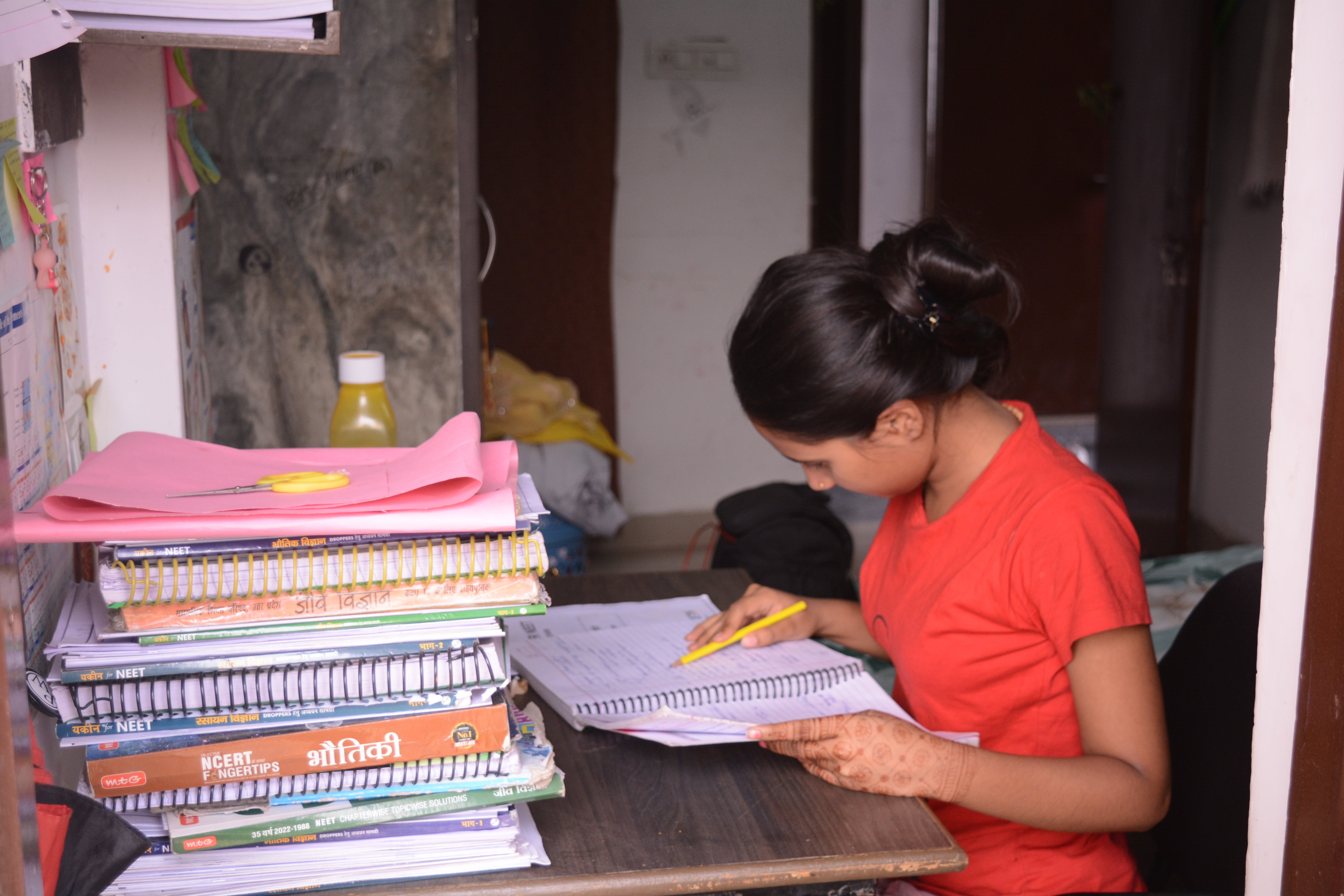
Your support helps us to tell the story
From reproductive rights to climate change to Big Tech, The Independent is on the ground when the story is developing. Whether it's investigating the financials of Elon Musk's pro-Trump PAC or producing our latest documentary, 'The A Word', which shines a light on the American women fighting for reproductive rights, we know how important it is to parse out the facts from the messaging.
At such a critical moment in US history, we need reporters on the ground. Your donation allows us to keep sending journalists to speak to both sides of the story.
The Independent is trusted by Americans across the entire political spectrum. And unlike many other quality news outlets, we choose not to lock Americans out of our reporting and analysis with paywalls. We believe quality journalism should be available to everyone, paid for by those who can afford it.
Your support makes all the difference.At around 6.30am every morning, this quiet Indian city suddenly springs to life with hundreds of thousands of young students emerging from their hostels to rush to a cluster of big teaching centres. Aside from the early hour, this could be any university town in the world. Except India’s Kota – three times the size of Manchester – is not offering higher education, but rather the hope of it in the future.
Stripped of green spaces, communal areas or anything else not strictly related to teaching, the buildings these students rush to are coaching centres, not colleges. Their names are imprinted on the T-shirts, bags and books of each student, as well as across the big billboards that jostle for space above the city’s streets.
These centres sell the dream of beating the notoriously competitive entrance exams for medical and engineering courses at premier government institutes, drawing some 200,000 teens every year who carry with them the weight of their families’ hopes of securing a better future.
For some, however, the pressure of clearing the Joint Entrance Exam (JEE) and National Eligibility-cum-Entrance Test (NEET), for engineering and medicine respectively, is too much to bear. This year Kota has been forced to reckon with the deaths by suicide of 27 coaching centre students, with the last two coming in late November. It is the highest rate this district in Rajasthan has seen since 2015.
Manjot Singh, 18, would often joke about being “next in line” whenever the issue of student suicide was discussed in his friendship circle. But the seriousness of such remarks from their “fun loving” friend did not register with the others until it was too late.
Singh was a very bright student, scoring 93 per cent in his final exam for class 12, the last year of secondary school in India. He took a gap year at Kota to prepare for the NEET exam and had been performing well in mock tests at his coaching centre, friends told police.
Five months after arriving in the city, he was found dead in his room. “Sorry,” read a note. “I have done it of my own free will. So, please don’t trouble my friends and parents,” read another. “Happy birthday Papa,” read a third.
Singh is among the scores of Kota students who will never be able to articulate the complex reasons that saw them take their own lives. But in a series of interviews with The Independent, current students detailed the intense feelings of isolation, stress and expectation that come with attending the city’s coaching centres.
Meena Jha*, 21, wakes up each day at around 5am to head to class. She has lunch in the mess hall at 1.30pm, and is back with her books by 3pm. Dinner is at 8.30pm, after which she must spend the evening preparing for the next day’s class. Before she knows it the clock has hit 2am, and she lies down to catch just a few hours’ sleep – still feeling as though she could have crammed more studies into the day.
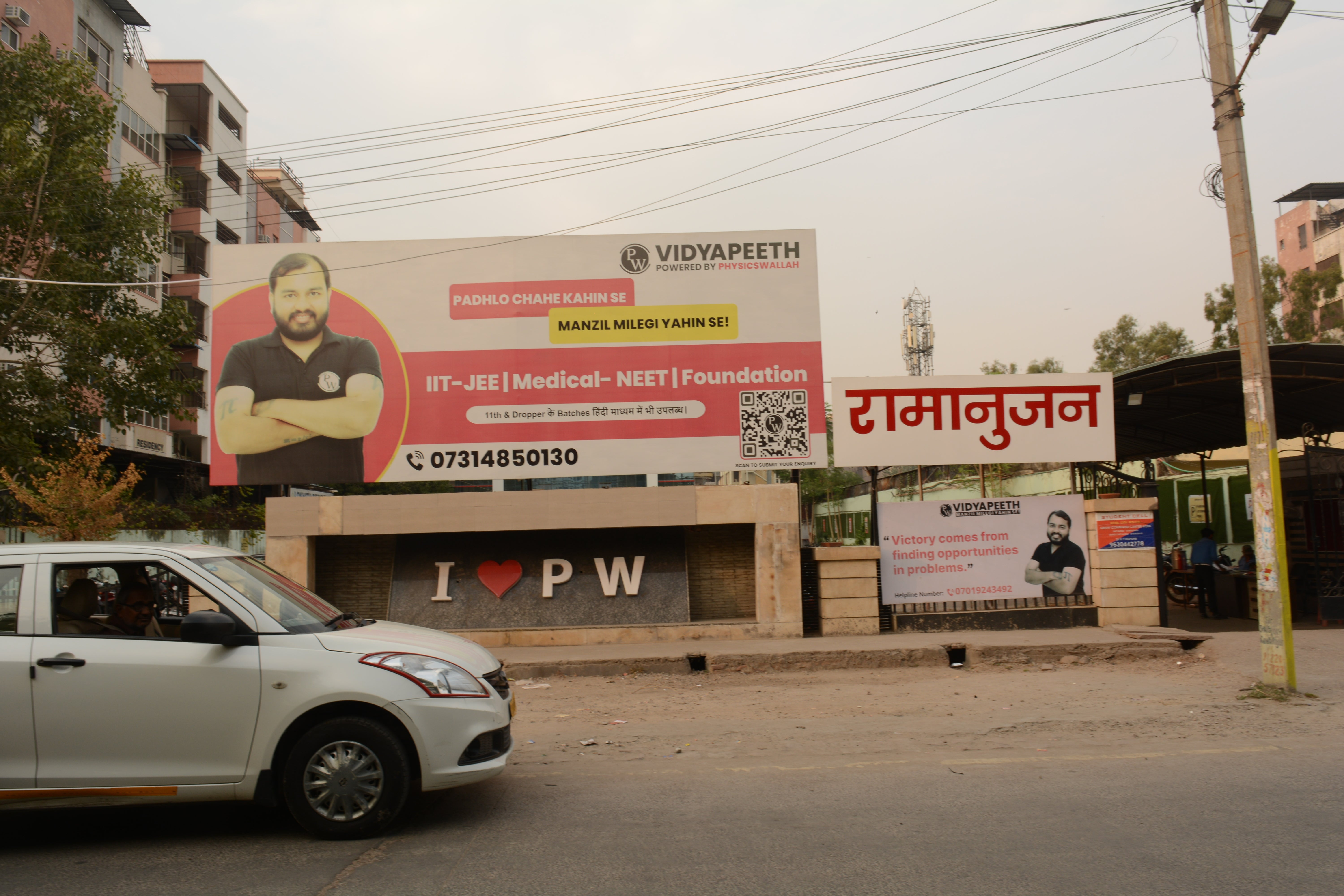
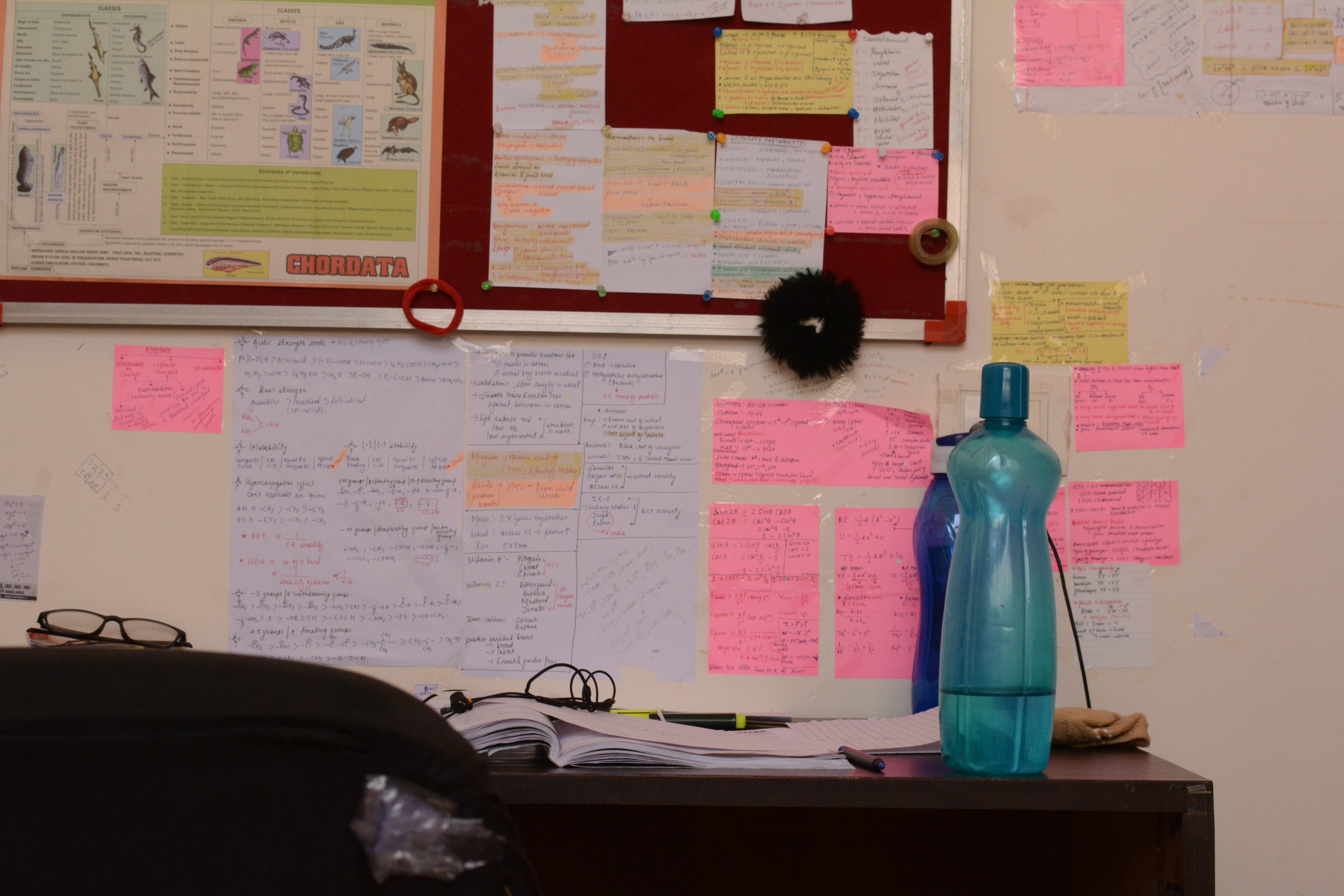
“I am not able to sleep here. I am just constantly fearful,” says the NEET aspirant. “I am worried whether I will be able to get into medical college or not.”
Hailing from the eastern state of Bihar on the other side of the country, Jha is using this year to prepare for her second attempt to clear the exam, having failed at the end of class 12.
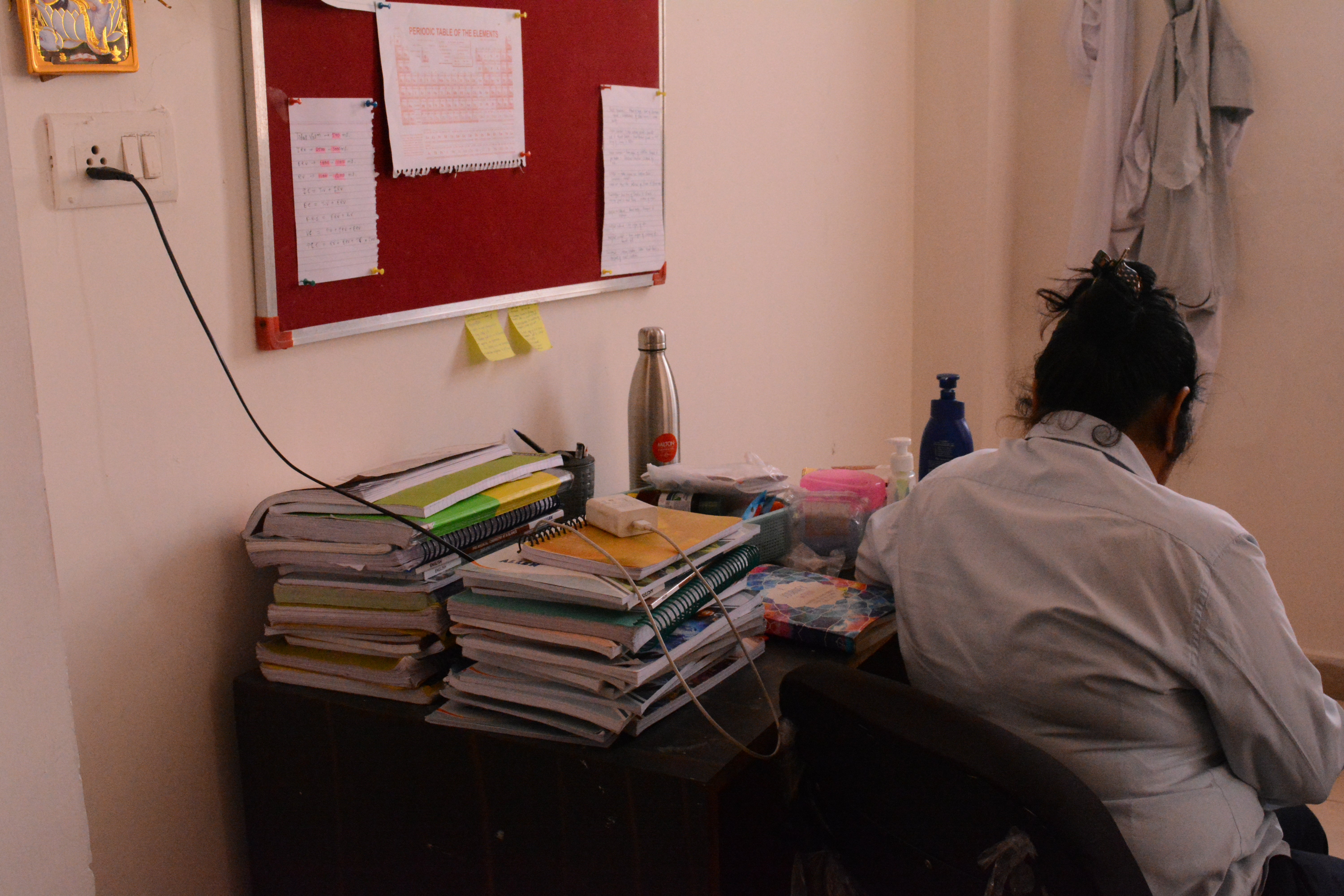
The pressure she feels is exacerbated by the competition for each seat. There are a little over 100,000 medical college places in India, according to data shared by health minister Mansukh Mandaviya in the Indian parliament, while over two million students appeared for the paper across the country this year, meaning there are 20 aspirants competing for each spot.
As a result, to these students recreation feels like a waste of time, and conversations with friends, listening to music or watching a movie becoming guilt-inducing activities, only adding to their mounting stress. The only acceptable form of relaxation is sleep, but anything exceeding six hours is seen as an unacceptable indulgence.
All of this means that, despite being surrounded by thousands of children the same age, many students come away from Kota having made no friends at all.
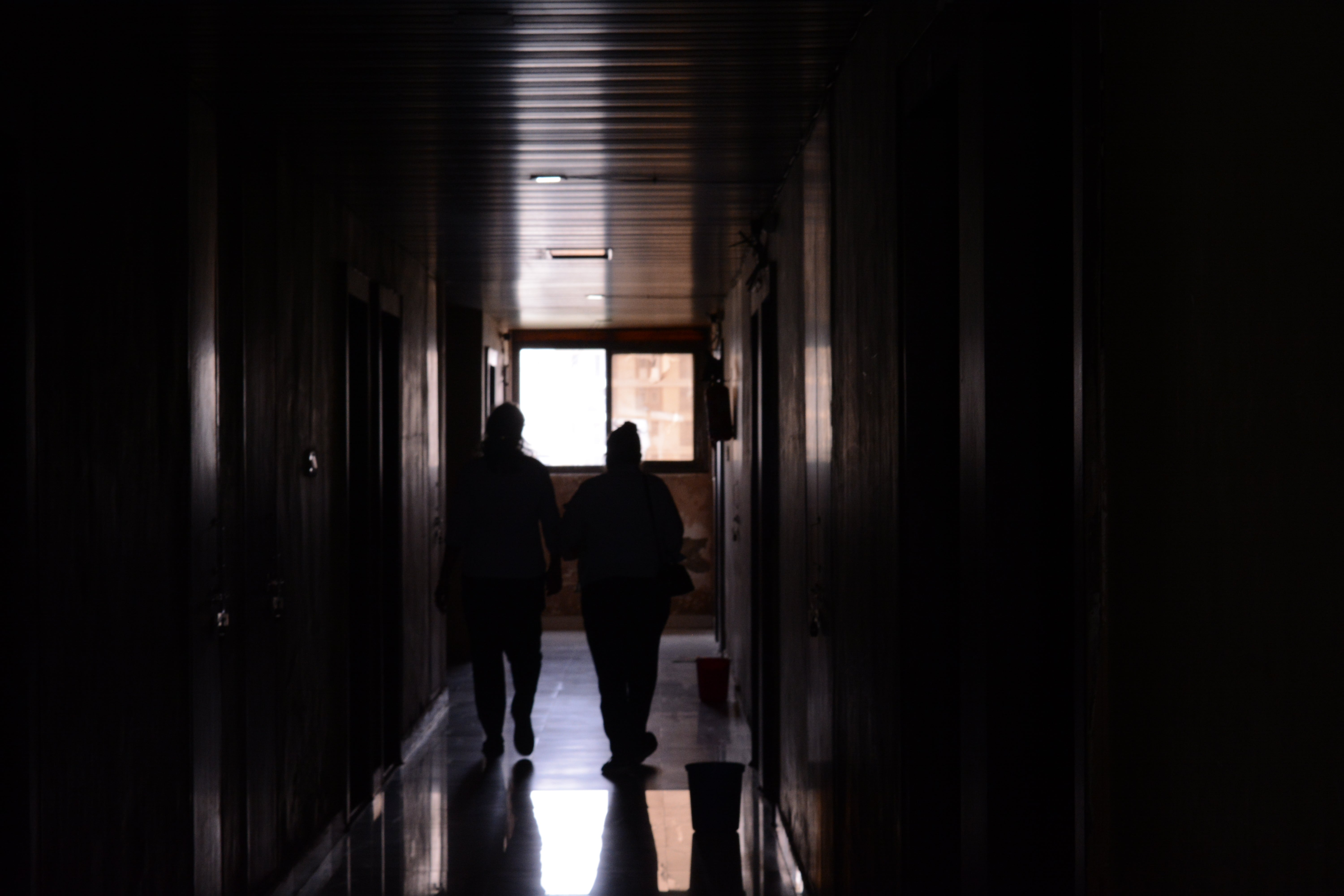
Jha says thoughts of the impending exam loom over every social interaction. “Every conversation is aimed at weighing where the competition stands. When you even try to strike up a conversation with someone, it appears like you are intruding. You don’t form any intimate connection with anyone.
“When anyone talks to you here, it appears to be done only to exchange notes or to know how you are faring in the preparation for the exam. But no one wants to know how you are really doing. You cannot unburden yourself to anyone. The conversation will only be for an ulterior motive.”
Kota-based psychiatrist Dr Surbhi Goyal says the lack of down time inevitably has an impact on a student’s mental health. “Our brain has a maximum focus time of 45 minutes. If you continue to study beyond that, you cannot grasp [new] things – it is useless then,” she tells The Independent.
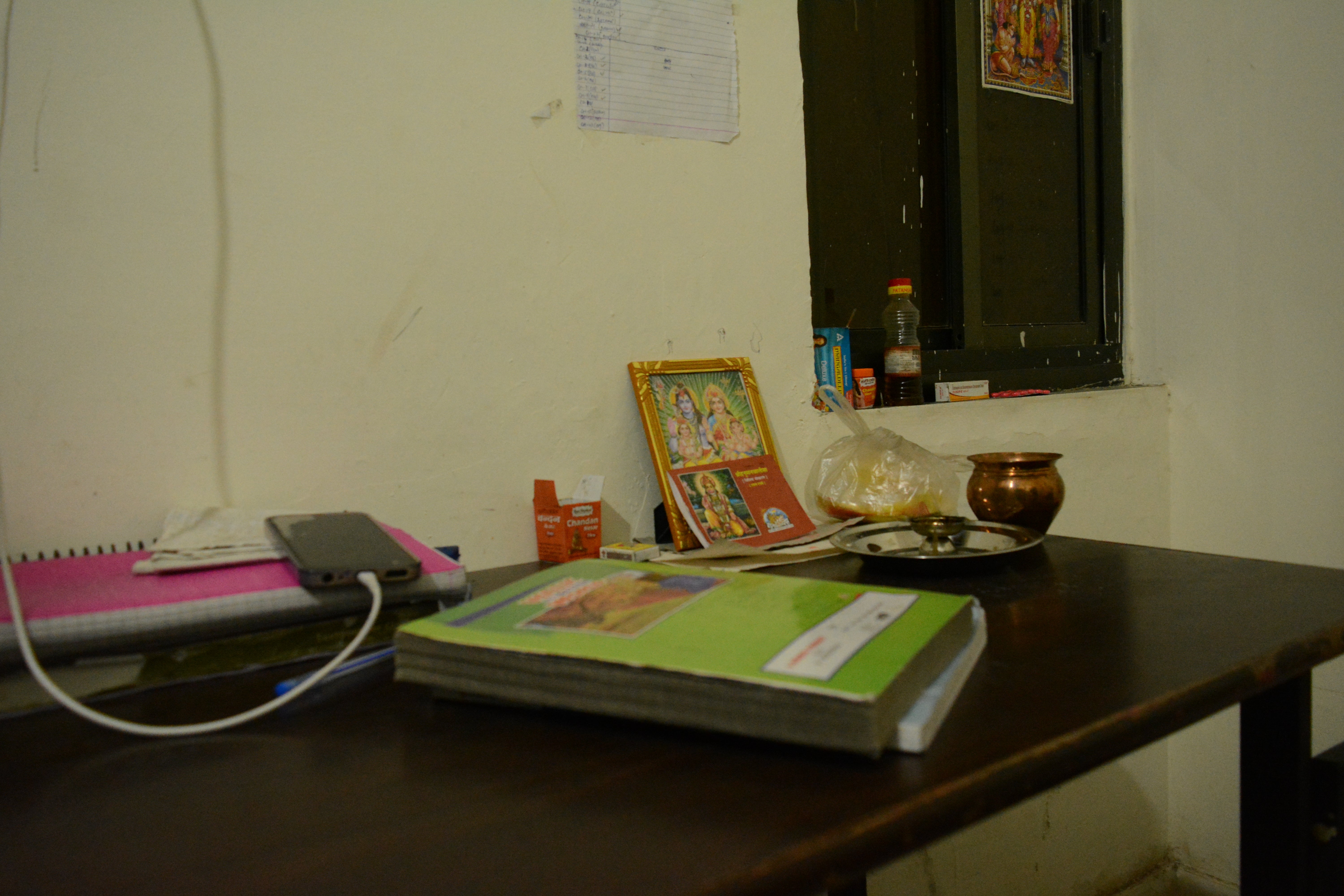
Recreation time also helps the brain focus, she explains. “Playing is beneficial because it is rehauling the body, leading to the release of happy chemicals… That is one of the major reasons why kids come here and don’t do well. Because the co-curriculars that they were used to pursuing at home, suddenly come to a standstill here.”
The reasons why students put themselves through this ordeal are varied, but many come from families that would never have been able to afford private tuition at home, and for whom the chance of a secure career means escaping the jaws of poverty – as well as dragging up the living standards and reputation of their family as a whole. Others, particularly female students like Jha, know that there is only one alternative to a college place.
“There is no support from my family,” says Jha, as she breaks into tears. “They said if I don’t clear it this time, they will ask me to do a normal (secondary school) graduation and get me married. None of the women in my family have left the house or have pursued further studies. It is like we are all being prepared for marriage, so we can serve our husbands,” she says.
Jha admits that despite studying for medical college entrance, she has never been “so keen on being a doctor”. But it is a compromise she is willing to make to be able to prioritise her education and have a shot at being financially independent.
“My mother is a housewife and she asks my father for money. And I have seen the amount of humiliation she goes through regularly and I hate it,” she says. “I never want to be that. If I am independent, I will never have to ask someone to fulfil my needs.”
For Prerna Singh, 19, her family’s hopes of leading a more respectable life rides on her shoulders. Living in the slums of Delhi, her father irons clothes while her mother cleans homes, together earning less than Rs 200,000 (£1,890) a year. With five mouths to feed, they do not have enough space to build a washroom. They use a communal one, she says.
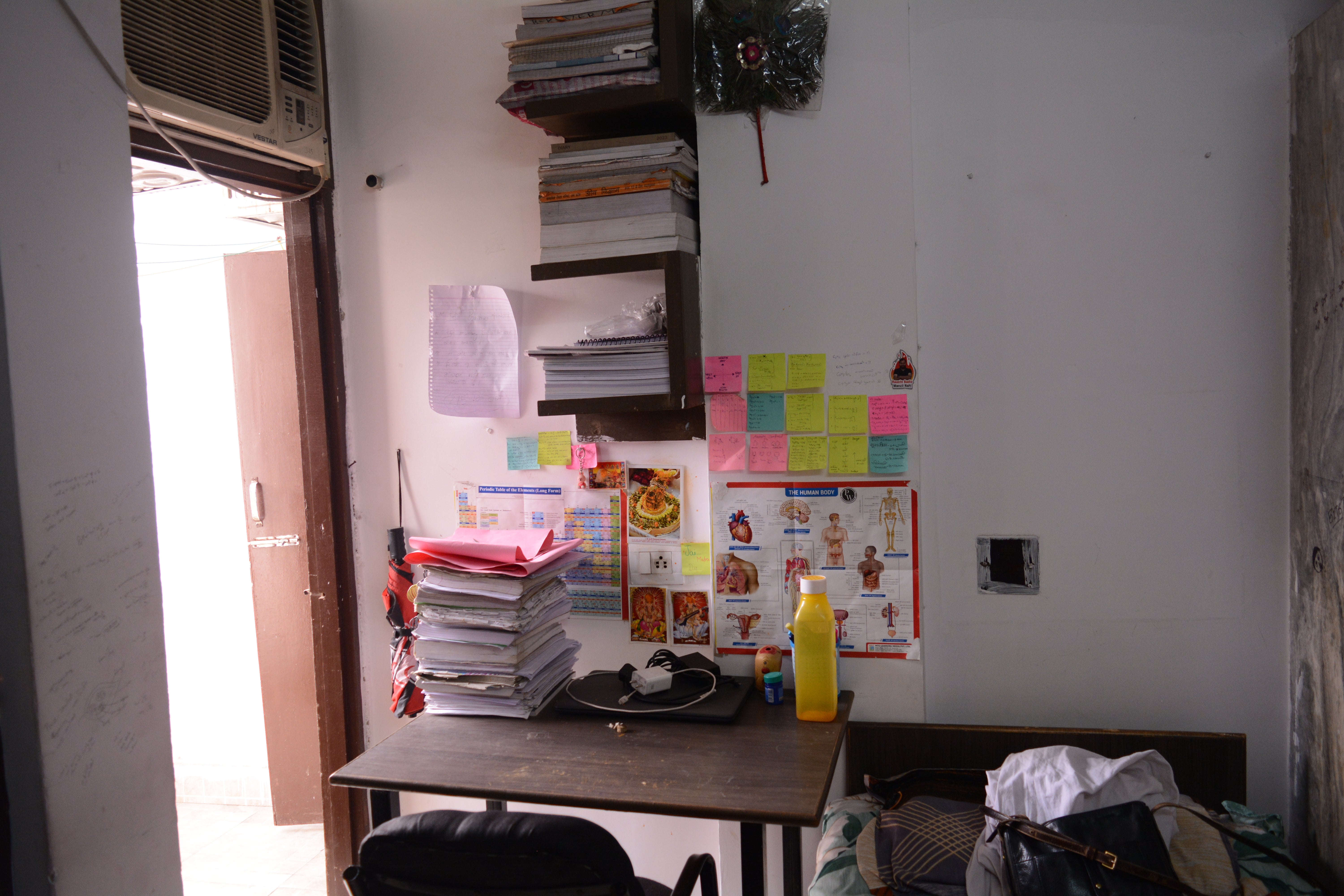
“My father wanted to study but he could not because of his [family’s] financial limitations. My mother also belongs to a very poor family and has been earning since the age of 10 – earlier working in a soap factory.
“It is my parents’ dream to ensure that we are successful enough that no one can oppress us,” says Singh.
This is her second gap year and it will be her third attempt at the NEET exam. While the family is concerned about her future, they are supportive and have not pressured her into giving up her dream and pursuing other options, she says.
“It is just that I want to clear [NEET] because a lot is at stake in terms of resources. I want to rise so much that I can give a good life to them. Especially my mother. She has seen it from the beginning that if a woman is not educated, she has to suffer a lot.”
Despite her family’s support, the pressure is showing. “I have nightmares often,” she says. “Sometimes, I feel that someone is holding my hair and pulling me. And have not been able to sleep properly at night.”
In her room, plastered with Post-it notes, timetable and thick stacks of books of physics, chemistry and maths, there are just a handful of personal pictures. Not of family, but of Hindu gods and goddesses.
“I am a bit scared. Paranoid as well. Like someone is constantly watching, looking, and that scares me. And sometimes negative thoughts cross my mind. I have put pictures of deities in different places. So that whenever I feel scared, there is something positive to believe in.” She does not elaborate on what she means by negative thoughts.
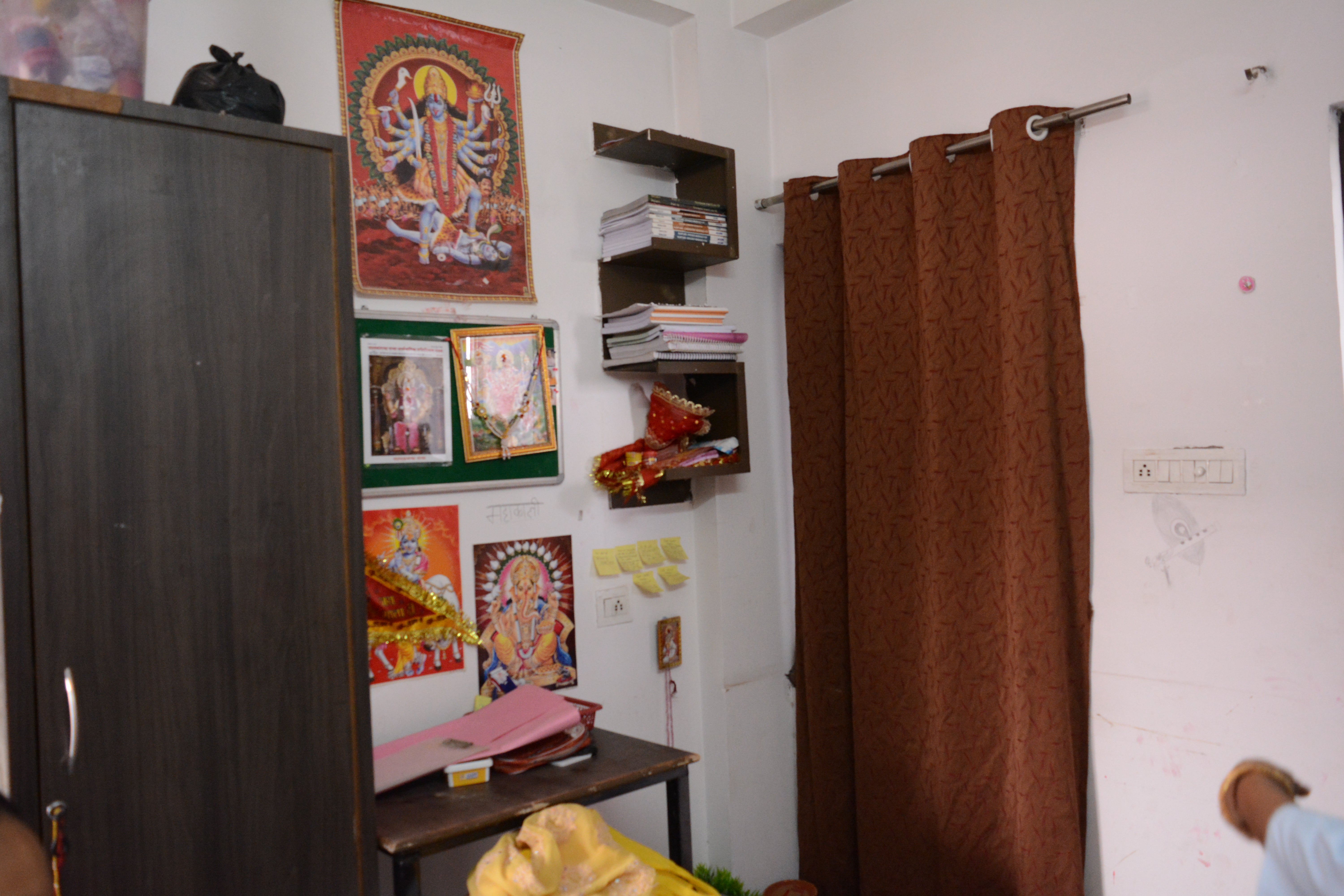
Mental health is a taboo subject in India, says Thakur Chandrasheel, assistant superintendent of Kota Police. The lack of discourse around the issue, especially among the teens themselves, prompted him to start a student cell dedicated to the coaching centre children’s welfare.
The 12-member team of police officers reach out to students in an informal setting. “Because these are young adults, they are reluctant to come forward with their problems,” he says. “So, the first thing is to reach out to the children, identify the symptoms and look for the red flags.”
The cell cannot monitor 200,000 students themselves, so extends outreach through teachers, senior students and hostel wardens. “We tell them to look out for things like if a child is not eating properly, or on time, not taking care of him or herself... or one who is lonely, not venting out, confining to [their] room, or has no friends.
“We are not councillors. We are not psychiatrists. But we can at least look for these symptoms,” he says. The team, functioning from 9am to 6pm, goes door to door in pairs, asking students about the problems they face and sharing helpline numbers that can be reached around the clock.
“We do not ask children if they have mental health issues,” Chandrasheel says. “But once you start talking to them about their routine and life, you come to know if he is lonely, doesn’t have a friend and he’s having some issues.
“Nobody wants a child to die by suicide. Neither the coaching centres nor the hostel,” says Mr Chandrasheel. “It is just that they don’t seem to know where they go wrong and how to rectify.”
Not all students come to Kota feeling a burden of family expectation, of course. Some bring a genuine sense of excitement, whether at what their futures hold or at the chance to get away from home in the pursuit of a new adventure.
Akshay Ravi*, 17, says he has been dreaming of becoming an engineer ever since India’s last failed moon mission in 2019, named Chandrayaan-2. Four years later, this year the country successfully landed a probe on the lunar surface with the Chandrayaan-3 mission, becoming just the fourth country to do so.
For Ravi, the achievement has only inspired him further. “I pitched to my parents that I want to come here to study. Because I want to join Isro,” he says, referring to the Indian Space Research Organisation, the agency behind the country’s lunar exploration programme. “I want to be a part of their missions.”
Linda Williams*, 18, moved to the city in July this year from the conflict-ridden state of Manipur, where violence between tribes has split the Imphal valley in two. Williams’ parents wanted her to have a safe place where her life and her studies would not be threatened by the turmoil at home, and they were all excited at the prospect of her working towards a better future.
But despite the situation in Manipur, four months later all the young student can think about is the comfort of being with her parents and returning to her life in the northeast. She watches intently the news coming out of her home state, hoping for a return to normalcy. “I am just wondering if I will ever be able to go back home,” she says.
Asked why she feels this way, Williams reveals that she is facing not just homesickness and isolation, but also racism and sexual harassment. She says she has never told anyone this at Kota before, only her family back home.
“I feel safer there [in Manipur]”, she says. Asked about instances of harassment, she says there have been multiple instances of men stalking her. “Like, when I go out at night, some guys would follow us on the road,” she says, trying to hold back tears.
Those same men harass her during the day, she says, using slurs based on her northeast Indian background. “In the morning, they don’t stalk us. They make fun of us. It happens frequently. It has happened four to five times at least.”
Williams says she has not reported the harassment to the Kota authorities, saying her parents cautioned against escalating the situation. “They said, if [the harassers] do physical harm or something, just [file a] complaint then.”
In between her worries about the situation back home and her own struggles feeling out of place in Kota, Williams must also find the mental bandwidth to focus on her studies.
“My parents are so supportive. They don’t pressurise me,” she says. “But I do put pressure on myself – because I am scared. Scared of not cracking the exam.”
If you are experiencing feelings of distress, or are struggling to cope, you can speak to the Samaritans, in confidence, on 116 123 (UK and ROI), email jo@samaritans.org, or visit the Samaritans website to find details of your nearest branch.
If you are based in the USA, and you or someone you know needs mental health assistance right now, call the National Suicide Prevention Helpline on 1-800-273-TALK (8255). This is a free, confidential crisis hotline that is available to everyone 24 hours a day, seven days a week.
If you are in another country, you can go to www.befrienders.org to find a helpline near you.
*Students’ names have been changed to protect their identities